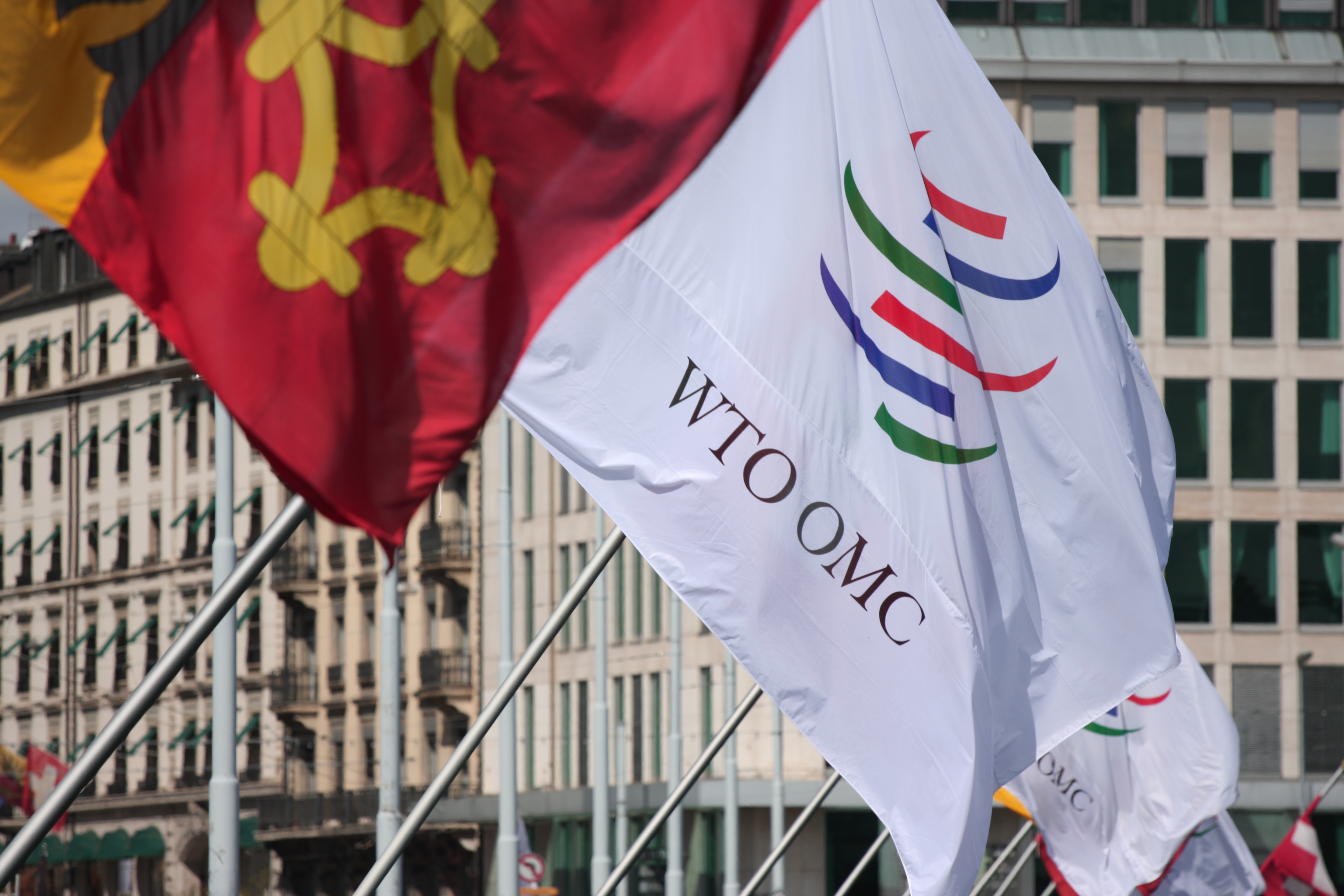In the era of Trump, trade is a touchy topic. His barbed attacks on existing institutions and norms have angered allies both on our borders and across the Atlantic, threatening the international order the US has been building since the end of World War II. But lost in the often-toxic discourse is the fact that, at least when it comes to China, Trump has a point: The country has long engaged in a sort of state-sponsored capitalism where domestic industries are subsidized to ludicrous degrees and foreign companies are sometimes forced into partnerships with Chinese companies—thereby losing proprietary technology and intellectual property. The World Trade Organization (WTO) is responsible for penalizing these practices, but it has fallen far short of its mandate in recent times. While Trump is wrong to destabilize world trade by threatening to leave the WTO, he is certainly right that the body needs reform so that it can hold violators—especially China—accountable.
One critical problem is the WTO’s dispute settlement system, which has largely been unable to curb China’s anticompetitive practices. As recently as this June, the European Union and the US have launched cases through the WTO targeting these tactics, which they claim force foreign companies “to grant ownership or usage rights of their technology to domestic Chinese entities and [deprive them] of the ability to freely negotiate market-based terms in technology transfer agreements.” These infractions, however, represent a mere sliver of the accusations the West has levied against China. The Information Technology and Innovation Foundation (ITIF), a Washington D.C. think tank, released a report in 2015—the 15-year anniversary of China’s membership in the WTO—detailing the country’s unwillingness to uphold its trade commitments. The ITIF found that China failed to treat foreign banks according to international norms, force its state-owned enterprises to make purchases according to economic considerations, open its telecommunications industry to foreign firms, and reduce export subsidies. The cost to the American economy is significant, with a 2018 report from the Office of the United States Trade Representative estimating the annual value of Chinese intellectual property theft to be between $225 and $600 billion alone.
Under current regulations, the WTO is almost powerless to act. Yet the US has quietly been advancing much-needed reforms through Robert Lighthizer, the administration’s chief trade negotiator, a starkly different approach to Trump’s blustery rhetoric and counterproductive tariffs. To neutralize Chinese market manipulations, the US would aim to widen WTO definitions regarding banned subsidies, which would narrow the legal scope of Chinese action when it comes to protecting domestic industries and expand the definition of what constitutes governmental action. This would make it easier to hold the Chinese government accountable by widening its liability and creating norms regarding the evaluation of market distortions and proportionate countermeasures. Perhaps most importantly, the burden of proof in disputed cases would be lowered. Under the current system, the dearth of economic information distributed by China—whose governmental agencies manufacture data in opaque and possibly fraudulent ways—makes it nearly impossible to successfully prosecute claims. Lowering the threshold of evidence needed and introducing transparency requirements would give the WTO viable mechanisms to punish willful Chinese trade violations.
As part of a move to increase American leverage in negotiations regarding these reforms, the Trump administration has blocked the appointments to the WTO’s appellate body since his inauguration, rendering the organization unable to deal with the growing number of infractions in a brewing trade crisis. Seven judges usually occupy the bench, with three presiding over each case, but only three remain. With the terms of two of these judges set to expire in December 2019, the US is steering the WTO dangerously close to the verge of collapse. Though a gambit this risky might seem foolhardy, it has caused other countries to take notice due to collective interest in free trade. In late September, the European Union, US, and Japan released a joint statement decrying Chinese practices and calling for reform. A summit also took place in late October of this year, and although all countries shared a stated commitment to WTO reform, they were reticent to call out China and its market-distorting practices.
While truly comprehensive WTO reform covering all members might be impossible (the last round of negotiations was stalled by disputes involving developing countries and protections for farmers), the US and potential partners—the EU, US, and Japan, would form a formidable bloc—could still use “plurilateral” agreements, which use the WTO as an enforcer of new terms and agreements for a group within the body. As Chinese economic growth has slowed down to its worst pace in decades, it has little choice but to accept the more comprehensive regulations. As The Economist writes, “It is in China’s interests to preserve the global trading order because, if China is isolated, the Communist Party cannot achieve the prosperity that cements its legitimacy. The benefits to China of its WTO membership have come not from lower tariffs in America—they were already low—but from the certainty of stable trading relationships.” For every country, the last line of this analysis rings true as well. Despite its flaws, the WTO provides needed normalcy to what could otherwise be a realist game of geopolitical jockeying, the implications of which we are beginning to see through the trade wars embarked on by Trump.
With a US president who has shown little sign of compromise and already provided a peek into what a world without the WTO would look like, the other countries in the body would be smart to advance reforms as quickly as possible. The appellate body timebomb ticks dangerously close to zero, making Trump’s decision to play chicken just a little crazy, but the geopolitical payoff of an empowered WTO and a more market-oriented China could be worth it. For a president whose trade policy has so far been decidedly anti-globalization, it would be an ironic, and perhaps underserved, legacy.
Photo: “WTO Public Forum 2010”
